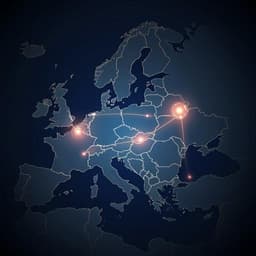
Interdisciplinary Studies
Envisioning a "science diplomacy 2.0": on data, global challenges, and multi-layered networks
S. Turchetti and R. Lalli
This article introduces an innovative approach, termed 'science diplomacy 2.0,' to tackle pressing global challenges. Conducted by Simone Turchetti and Roberto Lalli, it champions the integration of diverse data sources to prioritize research and promote responsible innovation observatories at both national and global scales.
~3 min • Beginner • English
Related Publications
Explore these studies to deepen your understanding of the subject.







